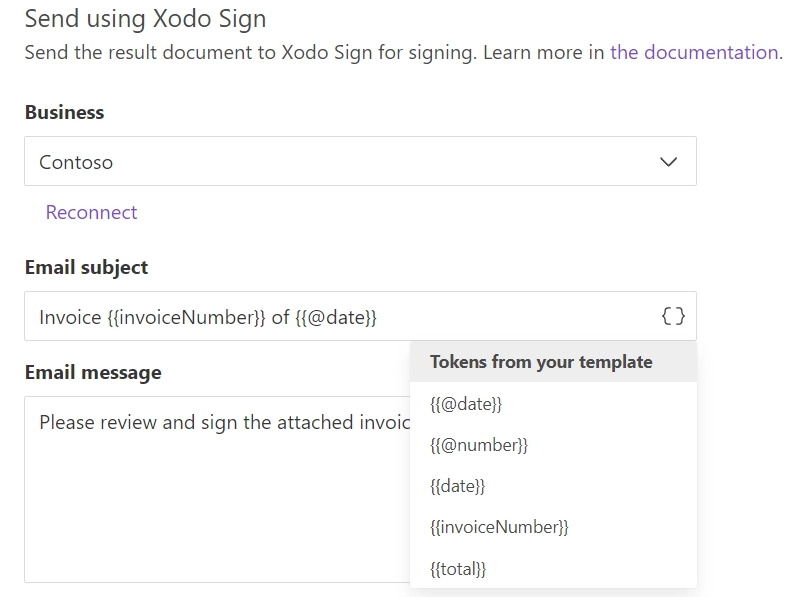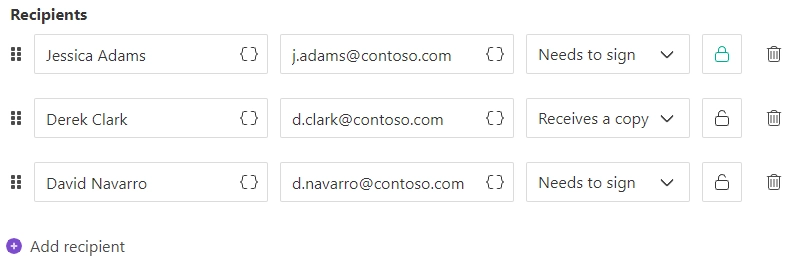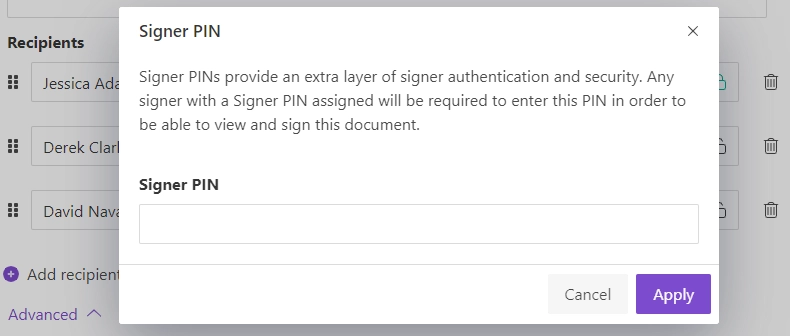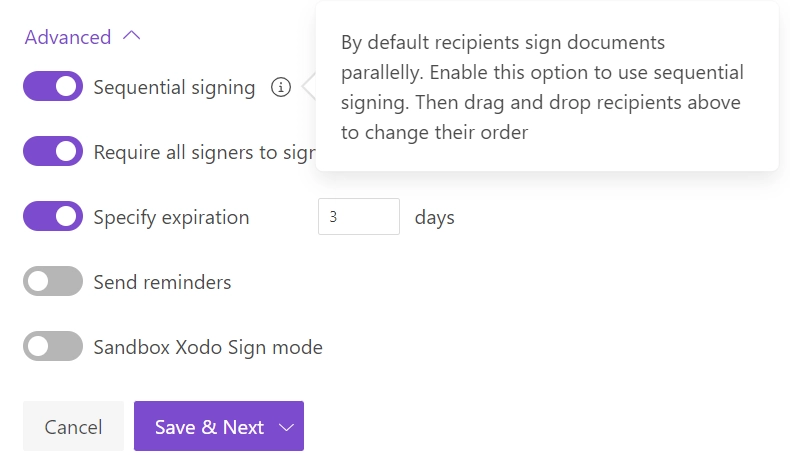Xodo Sign (formerly eversign) delivery
The Xodo Sign (formerly eversign) delivery sends the resulting document to Xodo Sign for signing.
To start with, you need to log in to your Xodo Sign account from the Plumsail account and authorize Plumsail Documents to access it.

After that, you’ll be able to customize the Xodo Sign delivery.
Note
This article describes how to generate and sign documents with Xodo Sign.
Main settings
Select the business from the dropdown:

Fill in email subject and body:

Add recipients - as many as you need. They could have Needs to sign and Receives a copy roles:

In the screenshot above, you may see lock buttons. One is green, which means it’s activated. Others are off.

Clicking on the lock, you can set a signer PIN. Signer PINs provide you with extra signer authentication and security.

Sequential signing and other advanced settings
Expand Advanced to customize more settings.

Here you can switch on Sequential signing, then just drag and drop recipients to define an order in which they should sign the document:

Enable Require all signers to sign to complete the document. If this option is on, all signers must sign the document in order to complete it. If at least one of them declines to sign, this document will be canceled.
One more significant option here is to enable Sandbox Xodo Sign mode. With Sandbox on, you won’t be charged, and signed documents won’t be valid. They will have a tag
[test-only-not-binding]. Use this mode for testing purposes.
Specify recipients dynamically based on your data
You may want to set recipients dynamically for each document. In this case, you can use tokens inside the Email field. Data passed to the process will define who will receive the document.

The token can contain not only one email address but the list of them comma- or semicolon-separated. Like this:
{
"email": "Derek Clark <d.clark@contoso.com>; Jessica Adams <j.adams@contoso.com>"
}
Mind that if you put the list of recipients into the single field, the information you typed in the Name field will be skipped.
You can specify recipient names in the list by placing names before the email address.

Or you can omit that, and the email address will be displayed as a recipient name.
In case Sequential signing is enabled, the order in which recipients receive the document will be the same as in the list.
Use tokens inside email subject and body
You can insert values from your data using tokens.
Their list is available by clicking { }.
Let us assume your data has property address.
In this case, you can include it using token {{address}}.
The tokens work in the same way as in document templates including value functions.
Additionally, you can use predefined tokens:
{{@date}}- full current date with time,{{@number}}- the current document number.
Note
